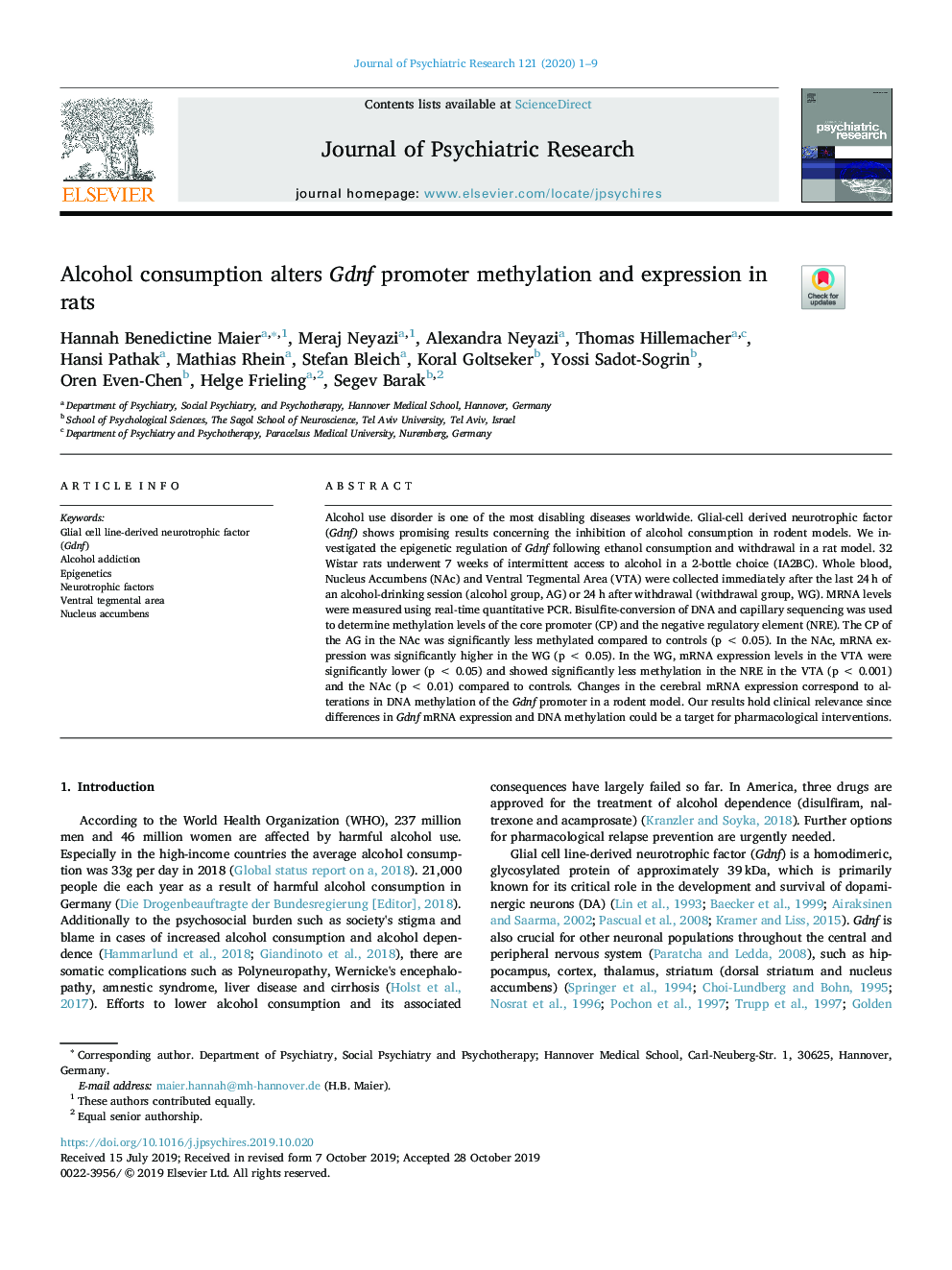| Article ID | Journal | Published Year | Pages | File Type |
|---|---|---|---|---|
| 13424514 | Journal of Psychiatric Research | 2020 | 9 Pages |
Abstract
Alcohol use disorder is one of the most disabling diseases worldwide. Glial-cell derived neurotrophic factor (Gdnf) shows promising results concerning the inhibition of alcohol consumption in rodent models. We investigated the epigenetic regulation of Gdnf following ethanol consumption and withdrawal in a rat model. 32 Wistar rats underwent 7 weeks of intermittent access to alcohol in a 2-bottle choice (IA2BC). Whole blood, Nucleus Accumbens (NAc) and Ventral Tegmental Area (VTA) were collected immediately after the last 24â¯h of an alcohol-drinking session (alcohol group, AG) or 24â¯h after withdrawal (withdrawal group, WG). MRNA levels were measured using real-time quantitative PCR. Bisulfite-conversion of DNA and capillary sequencing was used to determine methylation levels of the core promoter (CP) and the negative regulatory element (NRE). The CP of the AG in the NAc was significantly less methylated compared to controls (pâ¯<â¯0.05). In the NAc, mRNA expression was significantly higher in the WG (pâ¯<â¯0.05). In the WG, mRNA expression levels in the VTA were significantly lower (pâ¯<â¯0.05) and showed significantly less methylation in the NRE in the VTA (pâ¯<â¯0.001) and the NAc (pâ¯<â¯0.01) compared to controls. Changes in the cerebral mRNA expression correspond to alterations in DNA methylation of the Gdnf promoter in a rodent model. Our results hold clinical relevance since differences in Gdnf mRNA expression and DNA methylation could be a target for pharmacological interventions.
Keywords
Related Topics
Life Sciences
Neuroscience
Biological Psychiatry
Authors
Hannah Benedictine Maier, Meraj Neyazi, Alexandra Neyazi, Thomas Hillemacher, Hansi Pathak, Mathias Rhein, Stefan Bleich, Koral Goltseker, Yossi Sadot-Sogrin, Oren Even-Chen, Helge Frieling, Segev Barak,
